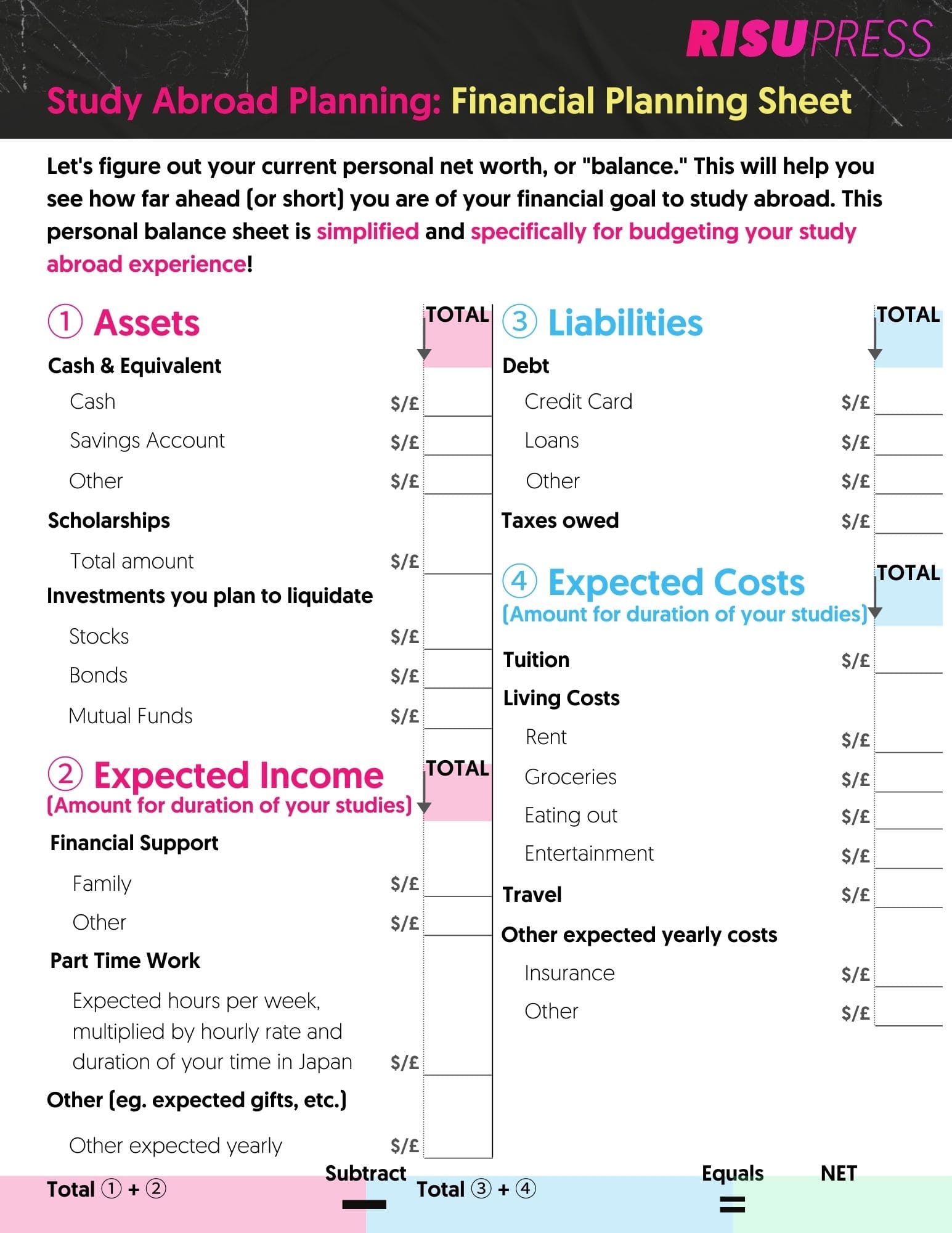No products in the cart.
December 4
Budget Planning Guide: How to Afford Study Abroad in Japan
0 comments
December 4
0 comments
Studying nowadays can be (almost) free online. With a little bit of perseverance and some ingenuity, you can find a ton of great learning resources on almost any topic. Learn to bake bread, understand the events leading up to WWII, or perhaps get cracking on learning Javascript – all of these things are covered somewhere, somehow. By virtue of living in the age of the internet, you can access the information! It's amazing.
There are times and places where the internet helps, but can't totally replace in-person learning.
One of those areas is language acquisition.
You may have heard it said before, but learning a language in the country where it is spoken is 1000x easier than trying to YouTube your way to fluency. Never mind the fact that language doesn't exist in a bubble – it's paired with the culture and mannerisms of the people who speak it. Seeing and hearing a language first hand is like diving into a pool instead of seeing the water from afar.
But these things do cost money.
If you're considering the life-changing experience of living and studying in Japan as part of your Japanese study path, it's important to consider how much it will cost. Today, we're going to take a look at how you can afford to study in Japan.
(TL;DR Studying in Japan is an investment in yourself and your future. You're not going to have to sell any organs.Yay.)

Have you ever done a hard tally on what you spend in a month? Do you keep a budget? If so, you'll know that just paying for necessities like rent, food, (and five streaming subscriptions) can add up. Now try imagining what this looks like living in Japan, studying Japanese at school during the day and trying to enjoy life in the evenings and weekends.
Never mind tuition.
Want to explore the country a bit? Better include that cost, too.
It's alright though.
Tens of thousands of similarly budget-challenged individuals from around the world also commit to learning Japanese in Japan and somehow manage to afford their study abroad dreams.
The truth is that the cost to study in Japan is really dependent on your personal lifestyle and how willing you are to adapt to a Japanese lifestyle. If you plan on eating steak and tacos 3 times a week, it's going to be pricey. If you're willing to try more fish and rice, and perhaps live in a share house with a few other students, you'll find even cities like Tokyo are super affordable.
Let's start with the basics. As part of your preparation to move to Japan, you need to make a personal Financial Planning Sheet. It's basically a simplified and summarized combination of a balance sheet and an income/expenses section.
You want the net result to be positive.
Normally, a personal balance sheet is something you make that covers what you have and what you owe. For instance, if you have $10,000 USD in your bank account, but you owe $1,000 to your uncle, then your net worth is $9,000.
Hopefully this part isn't too confusing and you end up with a net positive. That being said, student loans are real and can keep you net negative for longer than you might want. However, that's where cash flow and comes in and makes a difference.
If you have a parent or grandparent financially supporting you while you live in Japan (a financial sponsor), and your net each month allows you to live while also not falling being on debt payments, then that is a reasonable strategy (this is the reason for your budget).
The expenses side of your budget will be derived from the expected cost of living in Japan, as well as your tuition and flights and any mandatory debt repayments. The income side will be money from your savings, your financial sponsor, any scholarships you earn, and possibly a part-time job.
The net result of your budget needs to be positive, or else you will run out of money. This is really the only unbreakable rule of affording your study abroad experience.
This tool is designed to give you a summarized breakdown of your financial situation for the duration of your studies in Japan. It's slightly different than a traditional balance sheet, because it also incorporates income and expenses on top of assets and liabilities. We did this to give you a useful tool that should give you a pretty good idea of your net financial situation in studying abroad.
Don't forget: there are minimum savings and financial sponsor requirements to be eligible for a Japanese student visa. See our guide here!

This may not encompass absolutely every detail of your personal financial situation, but it should get you reasonably close.
The other important thing this tool does, is it forces you to really consider the big picture and the finer details.
Don't know what your rent might be? Time to get some estimates (you can ask us about housing with our share house partner, Sakura House here).
Not sure what your tuition would be? Choose a school you're interested in and grab the fees info from one of our school pages.
You are allowed to work up to 28 hours per week with a work permit, which you are eligible to apply for ahead of time when you have a Japanese student visa.
You can claim it at the airport upon arrival, or afterwards at your closest Japanese Immigration office.
The thing to keep in mind is that you may not pick up 28 hours of work per week. In fact, that may be counterproductive.
The point of studying in Japan is to actually study, and to experience the culture. If you find yourself burnt out from working and studying too much, you may not have the best experience, so be cautious.
The minimum wage is ¥1,000 per hour, but if you're teaching English (or another language), you can expect a better rate – likely minimum ¥2,000 per hour.
Like anything in life, there are millions of different individual circumstances, and you'll have to find your personal balance. Investing in your education and a huge experience like this can seem daunting, but there is no rush – figure out a proper plan before you commit!
In many cases, the financial sponsor for your Japanese student visa must show that they are capable of completely funding your time in Japan, which simplifies the whole situation.
Regardless, this is a good chance to begin getting a better handle on your own assets, liabilities, projected income, and expenses, so you know where you stand financially.
Let us know if you have questions about the costs of studying abroad, or check out our cost of living budget calculator for a rough estimate of the cost for one month of living in various parts of Japan!
Did you like this article? Please share it around!
Tags
guide, language school
Get info about schools, deadlines, and opportunities, straight to your inbox.
Session expired
Please log in again. The login page will open in a new tab. After logging in you can close it and return to this page.